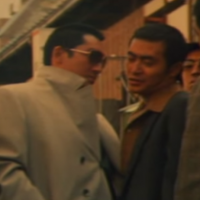In the early 2000s, when I was writing a book about yakuza movies, veterans of the genre's 1960s and '70s heyday I met had a fierce pride in their work but no illusions about its low ranking in the film-world hierarchy. In particular, the Toei studio's films about sword-swinging or gun-toting gangsters had long been conspicuous by their absence from festival circuit lineups and the awards season prize lists.
The clearest indication that critical winds have shifted is the inclusion of one of those films, Kinji Fukasaku's "Jingi Naki Tatakai" ("Battles Without Honor and Humanity") in the Cannes Film Festival's 2015 Cannes Classic program for digitally remastered and rediscovered films. This 1973 genre masterpiece about a 20-year gang war in Hiroshima and nearby Kure is nothing like what the world's premier film festival once considered a Cannes-worthy Japanese film. Based on the memoirs of a real-life gangster and shot with a news-documentary-like immediacy and propulsion, the film trashed the myth of the noble outlaw that earlier Toei films had been instrumental in perpetuating.
So kudos to Cannes for adding to the now-lengthy list of hosannas the film has accumulated over the years. And kudos to Toei for finally starting to digitally restore its huge library, beginning with "Battles" and continuing with a list that includes the 1965-72 "Abashiri Bangaichi" ("Abashiri Prison") series, the launch pad for the studio's biggest star, Ken Takakura.
When I screened the series' first entry at the Udine Far East Film Festival in 2003, I had to apologize to its director, Teruo Ishii, for the scratchy state of the print. Soon the print will be 2K-clean, but Ishii is gone. I'm sure he would have appreciated the irony — and the honor.
















With your current subscription plan you can comment on stories. However, before writing your first comment, please create a display name in the Profile section of your subscriber account page.